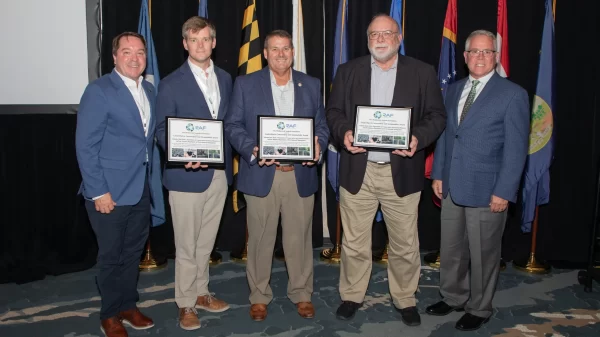The Energy Institute of Alabama announced the release of a series of independent studies that assert that coal ash storage sites across Alabama can be safely and effectively closed in place in accordance with federal & state regulations. The studies were conducted by Tuscaloosa-based P.E. LaMoreaux & Associates, Inc. (PELA GeoEnvironmental, Inc.) and overseen by the firm’s Vice-President of Environment & Ecology, Lois D. George, PG, a recognized professional in the field of hydrogeology.
Under federal rules, the operators of coal ash storage sites – including TVA, Alabama Power, and PowerSouth – must close existing sites by one of two methods: leaving the ash in place with a final cover system or removing the ash and relocating it to another location. The Alabama Department of Environmental Management (ADEM) is currently reviewing applications to close a number of coal ash storage sites by closure in place and will host a public hearing tomorrow evening on such application for Plant Barry, a power plant north of Mobile at which Alabama Power has operated a coal ash storage site since 1965. Public hearings on other storage sites will follow.
“It’s important for the public and lawmakers to understand that closing in place is a legal and safe approach for dealing with coal ash,” explains Energy Institute of Alabama Executive Director Blake Hardwich. “And while opponents of closure in place have tried to depict this approach as illegal and uncommon, more than half of all coal ash in the South is being closed safely in place, rather than being trucked through and to other communities and compounding other environment issues. This recent, independent study clearly shows that plans to close in place are safe and technically sound and effective.”
While every coal ash site is unique, applications to close in place commonly involve removing and treating existing water within the site; reducing the site’s footprint to move it further from bodies of water such as nearby rivers; enhancing flood protection and strengthening other protective systems; covering the site with a multi-layer, impermeable cap; and implementing an aggressive post-closure 30year program of monitoring, inspection, maintenance, record keeping and reporting to ensure the safety of the local environment and surrounding water sources.
For example, Alabama Power’s application for Plant Barry involves consolidating the current coal ash site by reducing the ash footprint from 600 acres to 300 acres. These actions move the site farther from the Mobile River. A secondary 22-foot dike will be built higher than any Mobile River crest ever recorded. A separate hydrology report shows that even a 500-year flood with an additional 5 feet of storm surge showed no impact on Plant Barry or its ash pond.
“Alabama Power has proposed, consistent with regulatory criteria, to close its coal ash impoundment at Plant Barry by closure in place,” states the study’s author, Lois D. George. “Once executed, this comprehensive and robust closure program will establish containment of the coal ash material and redundant safety and environmental protection controls.”
“The independent studies are very clear that Alabama’s power providers don’t have to truck millions of tons of coal ash to other, yet unnamed communities to ensure public health and safety,” adds Hardwich. “The technology and engineering exists to seal this material right where it is in a way that is environmentally responsible.”























































